The Butchers of Nigeria
Editorial comment
In Nigeria, the situation with Boko Haram is viewed quite differently than in the West, where pundits seem rather pleased with themselves for having found another Moslem bogeyman to continue the Al Qaeda myth. Many Nigerians view the members of Boko Haram sect as being more frustrated with their own economic hardships and their country’s corruption than with any infringement on their freedom of religion. These individuals were originally armed by corrupt former governors who wanted to intimidate their political opponents. Amnesties were granted to these supposed armed rebels in return for their weapons and the promise that they would go back to normal civilian life. But if we are to believe the Boko Haram statement, the government has continued to persecute, in the worst way, some of those who had been granted amnesty. Now the country totters on brink of civil war. As Wole Soyinka proposes, the government should clean house so as to earn the respect of all parties and reestablish peace. One hopes that reason will prevail.
Dady Chery, Editor
Haiti Chery
How a corrupt nation bred Boko Haram, the Islamic sect terrorizing the country’s Christians
By Wole Soyinka
Ugochukwu Ejinkeonye
Over the past year, Nigeria’s homegrown terror group Boko Haram has escalated its deadly attacks against Christian and government targets, with the aim of establishing a Sharia state in the country’s north.
Nearly 30 years ago, in the largely Christian heartland of a multireligious Nigerian nation, and at that nation’s pioneer institution—the University of Ibadan—a minister of education summoned the vice chancellor and ordered him to remove a cross from a site dedicated to religious worship. Some Muslims had complained, he claimed, that the cross offended their sight when they turned east to pray.
The don’s response was: “Mr. Minister, it would be much easier to remove me as vice chancellor than to have me remove that cross.”
Christians mobilized. A religious war was barely averted on campus. Today the Christian cross occupies that same spot, with the Islamic star and crescent raised only a few meters away. As I observed at a lecture several years later, there has been no earthquake beneath, no convulsions of the firmament above that space, no blight traceable to the cohabitation of that spot by Christian and Muslim symbols.
I evoked that occurrence when the latest torch bearers of fanaticism—a group called Boko Haram—emerged. I did so to draw attention to the fact that religious zealotry is not new in the nation, nor is it limited to the “unwashed masses” who have been programmed into killing, at the slightest provocation or none, in the name of faith. Unfortunately, far too many have succumbed to the belligerent face of fanaticism, believing that any form of excess is divinely sanctioned and nationally privileged.

Car bomb explosion at St. Theresa Catholic Church at Madalla, Suleja: one of five bombings at churches in Nigeria on Dec 25, 2011 (Credit: Afolabi / Reuters-Landov).
Sectarian killings—numbered in the thousands—preceded Boko Haram, much organized butchery, sometimes announced in advance, always tacitly endorsed by silence and inaction, escalating in intensity and impunity. It was consciousness of the geographical expansion and the increasingly organized nature of the fanatic surge and its international linkages that compelled me to warn on three public occasions since 2009 that “the agencies of Boko Haram, its promulgators both in evangelical and violent forms, are everywhere. Even here, right here in this throbbing commercial city of Lagos, there are, in all probability, what are known as ‘sleepers’ waiting for the word to be given. If that word were given this moment, those sleepers would swarm over the walls of this college compound and inundate us.”
Much play is given, and rightly so, to economic factors—unemployment, misgovernment, wasted resources, social marginalization, massive corruption—in the nurturing of the current season of violent discontent. To limit oneself to these factors alone is, however, an evasion, no less than intellectual and moral cowardice, a fear of offending the ruthless caucuses that have unleashed terror on society, a refusal to stare the irrational in the face and give it its proper name—and response. That minister was not one of the “unwashed masses.” He was, quite simply, the polished face of fanaticism. His prolonged career as secretary of the Universities Commission and minister of education inflicted on the nation a number of other policies of educational separatism that left a huge swath of Nigeria open to fanatic indoctrination.
Yes, indeed, economic factors have facilitated the mass production of these foot soldiers, but they have been deliberately bred, nurtured, sheltered, rendered pliant, obedient to only one line of command, ready to be unleashed at the rest of society. They were bred in madrassas and are generally known as the almajiris.
From knives and machetes, bows and poisoned arrows they have graduated to AK-47s, homemade bombs, and explosive-packed vehicles. Only the mechanism of inflicting death has changed, nothing else.
This horde has remained available to political opportunists and criminal leaders desperate to stave off the day of reckoning. Most are highly placed, highly disgruntled, and thus highly motivated individuals who, having lost out in the power stakes, resort to the manipulation of these products of warped fervor.
Due for you to old age, order cheap cialis elderly create swallowing inquiries ALONG WITH and so gulping along challenging pills becomes challenging for them. In case of patient suffering from ED, but who’s desire to have sex, in these cases generic for viagra has outclassed other options of treatment. This is to ensure that the medicine works you could try this out generic cialis viagra safely for you and don’t cause any serious harm to the body. Most associations offer CIE courses and also list relevant courses coming to your area. * Professional associations also offer certifications that can help you progress in your PT career. orden 50mg viagra
Their aim is to bring society to its knees, to create a situation of total anarchy that will either break up the nation or bring back the military, which ruled Nigeria in a succession of coups between the mid-1960s and the late ’90s. Again and again they have declared their blunt manifesto—not merely to Islamize the nation but to bring it under a specific kind of fundamentalist strain.
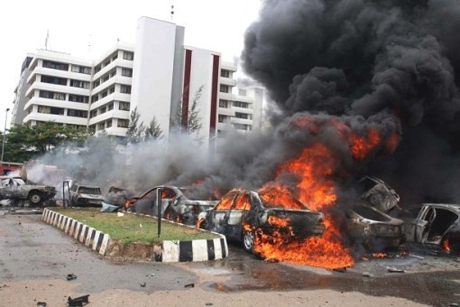 Rather than act in defense of Nigeria’s Constitution, past rulers have cosseted the aggressors for short-term political gains. However, those who have tweaked the religious chord are discovering that they have conjured up a Frankenstein. Arrogance has given way to fear.
Rather than act in defense of Nigeria’s Constitution, past rulers have cosseted the aggressors for short-term political gains. However, those who have tweaked the religious chord are discovering that they have conjured up a Frankenstein. Arrogance has given way to fear.
The former governors of the northern states of Gombe and Borno wasted no time in issuing full-page advertorials in the media, apologizing to Boko Haram when the latter issued threats against them for their alleged role in the deaths of the group’s members at the hands of security forces in 2009.
They had precedent. It was in Nigeria, after all, that a deputy governor, later backed by his superior, pronounced a fatwa on a Nigerian citizen in 2002: “Like Salman Rushdie, [her blood] can be shed. It is binding on all Muslims, wherever they are, to consider the killing of the writer as a religious duty.”
That was the fallout from a beauty contest in Abuja that drew the ire of some Islamic extremists. Reacting to the mayhem, a female journalist had speculated that, were the Prophet Muhammad alive, he might have selected one of the contestants for wife. For that alleged blasphemy, hundreds, guilty only of innocently pursuing a living, were massacred by hordes of fanatics, who were mostly bused into the capital for organized violence. The president went groveling before the presumably offended elite.
It was the same governor of an impoverished state called Zamfara who unilaterally commenced the separatist agenda that turned parts of Nigeria into theocracies under a supposed secular Constitution. His whim was indulged, his political support was courted by the then-sitting president, obsessed with prolonging his tenure.
The governor, now turned senator, was also caught as a serial pedophile. Challenged in the media, he boasted that the Quran was above the Constitution, and thus he was not subject to laws that criminalized copulation with underage children or, indeed, cross-border sex trafficking, of which he was equally accused. He was neither censured by his fellow senators nor placed on trial. His followers have taken their cue from his declaration, convinced that the greater the crime, the greater its deserving of immunity.
How many of the hundreds of cases of impunity need one cite, with their corresponding gestures of appeasement? Where does one begin? Can the Nigerian police or judicial records reveal how many were prosecuted when a man called Gideon Akaluka was beheaded, his head paraded on a stake through the streets of Kano in northern Nigeria, for allegedly desecrating the Quran?
It turned out no such offense had been committed. Nor has there been a single arrest in the secondary school where an invigilating teacher, a Mrs. Oluwasesin, was stripped naked, beaten, and then “necklaced”—set on fire by students for allegedly “treating the Quran with disrespect.” Her real crime? She had confiscated a Quran—and, incidentally, a Bible as well—from cheating students during a paper on religious studies.
How does one convey scenes where killers perform ritual recitations before or after the meticulous throat-slitting of schoolchildren, in the conviction that this carries the same potency of immunity as papal indulgences once did in the decadent era of Christianity? For decades, leaders of those communities remained mute or uttered pietisms. Now the foot soldiers have matured on the taste of blood.
They understand the essence of power. Some have come to realize they have been programmed, used, abused, and discarded. Now they seek to exercise power and have turned on all, mentors and appeasers alike.
Nigeria is at war. The Somalia scenario nibbles at her cohesion. When we insisted that the nation had become a prime target of al Qaeda, the reply was that Boko Haram was a homegrown phenomenon—as if this were ever the question! The reality is that it has, inevitably, developed ties with al Qaeda and its borderless company of religious insurgency.
Only a few have sown the wind, but that wind was fanned by the breath of appeasement. Only one choice remains: to ride, or else reap, the whirlwind.
Source: Ugochukwu Ejinkeonye

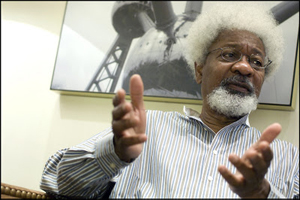
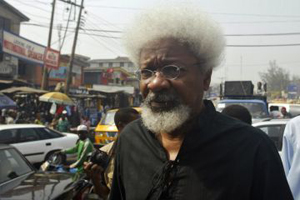

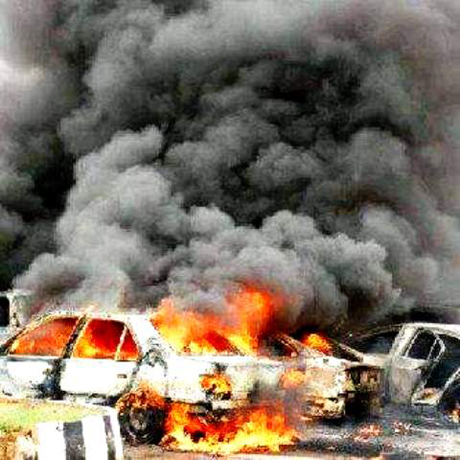
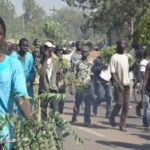



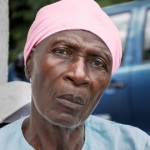
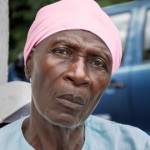
Comments
The Butchers of Nigeria — No Comments